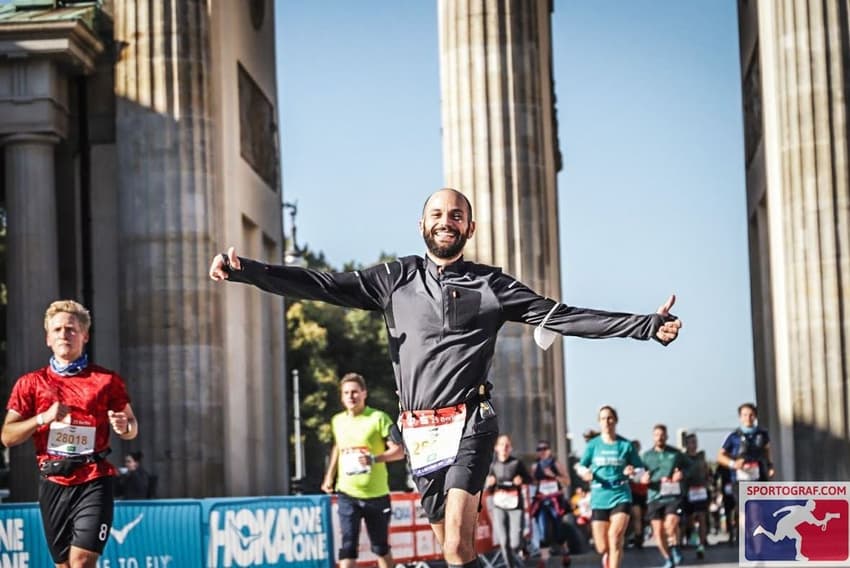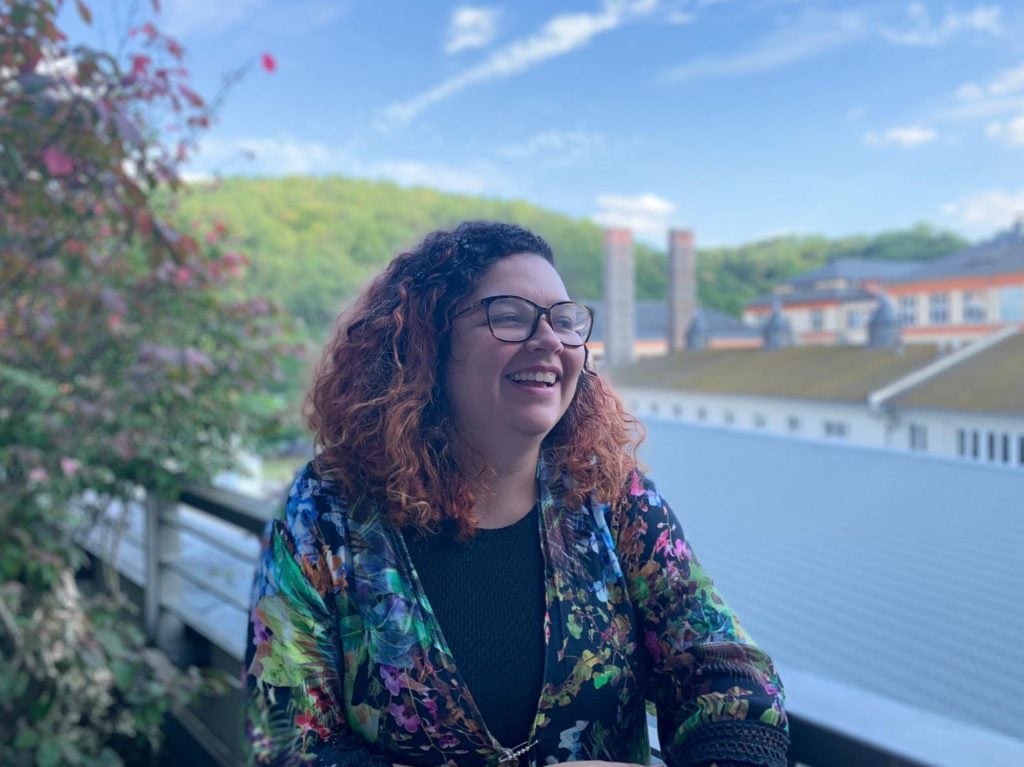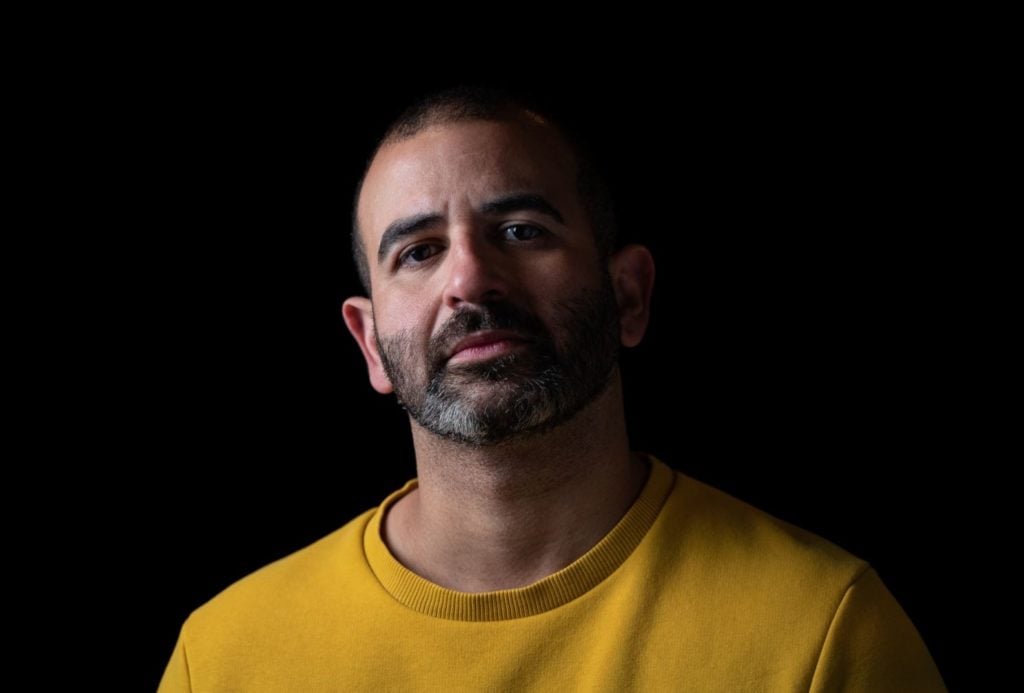'We've made a community': Who are the Brazilians in Germany and where do they live?

Germany’s Brazilian community has almost doubled in the last 10 years. We look at which places in Germany have the biggest Brazilian contingents - and what brought some of them here.
You might have noticed more places to get Brazilian food or might be overhearing a bit more Portuguese in German streets than you used to.
Germany’s Brazilian community has grown especially fast in the last 10 years and numbered over 50,000 people at the end of last year. That’s up from about 34,000 in 2011 and around double the 25,000 or so Brazilians who were living in Germany 20 years ago - according to official German statistics.
Brazilians are found in sizeable numbers just about everywhere in Germany today, with the largest overall communities making their homes in Bavaria, North-Rhine Westphalia, and Baden-Württemberg. About 9,800 Brazilians live in Bavaria, compared to about 9,200 in North-Rhine Westphalia and around 8,200 in Baden-Württemberg.
Relative to its share of the population though, you’ll find Germany’s largest Brazilian community in Berlin. Around 7,200 Brazilians were living in the capital at the end of last year.
Eastern German states tend to have the lowest Brazilian population, with just 350 living in Saxony-Anhalt.
Similar to our recently featured Indians in Germany, the country’s Brazilians tend to be millennials, with the biggest chunk being between 25 and 44 years-old.
But unlike Germany’s Indian community, where men outnumber women by around two to one, or the country’s almost perfectly gender-balanced 18,000 Canadians - Germany’s Brazilian community leans female. Almost two-thirds of all Brazilians living in Germany are women.
READ ALSO: Indians in Germany: Who are they and where do they live?
Love, friendship, and career: Why Brazilians come to Germany
In 2005 Paula da Silva Lima was at a party in her hometown of Fortaleza in northeast Brazil when a German intern walked in.
“There were so many people around and she just suddenly appeared and looked at me. Love at first sight,” she recalls. “It all started with love.”
They lived together in Fortaleza together for a while but, eventually, after two years, the internship ended and Paula’s girlfriend had to return to Germany.
“We kept in touch for a while, but it got to the point where I had to drop everything to come and live with her in Germany,” she says. “I had a stable life in Brazil. But love spoke louder.”
da Silva didn’t find herself without company from home for long though. Around the same time, her friend Fred Almeida Bessa moved from Fortaleza to Berlin as well to be with his German partner.
“I’m so comfortable living here," Almeida Bessa says. "Every time I come back from vacation and see Berlin’s TV Tower, I think to myself ‘I am home!’”
Six years later, their childhood friend Filipe Macedo - a Spanish-Brazilian who had been working for a major European airline in Madrid - had to choose a new city to work in when the company shut down its Madrid base.
“I didn’t hesitate to come to Berlin,” he says. “I had always been fascinated with the city and had friends living here for years, so it was a natural choice.”

Friends Filipe Macedo and Paula da Silva, both from Fortaleza in northeast Brazil, on vacation together in Spain. Both are long-term Berlin residents. Photo: Filipe Macedo
“We’ve made a little community here,” says da Silva. “We’re always together, take care of each other.”
READ ALSO: Who are Germany’s foreign population and where do they live?
For both Daphnee Iglesias and Jorge Aun, now 36 and 38-years-old respectively, living in Germany was originally meant to be temporary. Having both come here to study, they both ended up staying. Iglesias because of career opportunities and Aun because he fell in love with and married his German husband.
“I can be whoever I want, professionally or personally speaking,” says Iglesias, originally from Goiania, who now lives and works in Bonn at a humanitarian organisation. “Work-life balance is so good you can actually make a living without killing yourself in the process.”

Daphnee Iglesias, originally from Goiania, now calls Bonn home. Photo: Daphnee Iglesias
“My husband is obviously the main reason for me to stay, but I enjoy my life quality in Germany more than I did in Brazil,” says Aun, originally from Sao Paulo, whose schooling and private sector jobs in Germany have seen him take up residence in Wuppertal, Magdeburg, and Berlin during the decade he’s lived here.
Dancer and Movement Coach Leonardo Rodrigues, now 42 and originally from Salvador in northeast Brazil, had been living in Austria before moving to Germany to take advantage of a stronger professional network and higher salaries. Rodrigues has lived in Berlin, Cologne, Frankfurt, Nuremberg, Dresden, and Heidelberg, but will soon move to Mannheim.

Leonardo Rodrigues, originally from Salvador in northeast Brazil, has lived in Berlin, Cologne, Nuremberg, Dresden, Frankfurt, Heidelberg, and Mannheim during his almost 20 years here. Photo: Leonardo Rodrigues
“I definitely feel more socially included in Germany than I did in Austria,” says Rodrigues. “I’ve also been living in amazing cities, all very distinct from each other with beautiful monuments and amazing diversity.”
READ ALSO: Canadians in Germany: Who are they and where do they live?
The complex relationship with home
All the Brazilians we spoke to admit feeling serious trepidation around the recent elections that saw Luiz Inacio "Lula" da Silva squeak out a razor-thin victory over the incumbent far-right President Jair Bolsonaro.
Iglesias says being physically far away has helped her manage the stress political disagreements sometimes put on the relationship she has with her family in Brazil. “Sadly being near or far doesn’t always make a difference," she says. "The country is very polarised and people do not want to have constructive discussions or listen to each other. Even casting my vote here felt bittersweet. I can help my country by doing that but many of my countrymen have told me I shouldn’t care because I left.”
“I felt safer here,” admits Aun. “The debate on the streets or even in Brazilian workplaces got very toxic during this last election.”

German Foreign Minister Annalena Baerbock meets new Brazilian President-Elect Luiz Inacio "Lula" da Silva in Egypt. Photo: picture alliance/dpa | Christophe Gateau
At the same time, like any of us who live away from where we grew up, there are things Brazilians in Germany miss about home too.
“The nature in Brazil, especially the Cerrado waterfalls. And food. I miss fruits that really taste like fruit,” says Iglesias.
“My family in Brazil is rather large! I miss my family’s parties, especially at Christmas,” says Almeida Bessa.
“I miss being able to look out at the sea every day,” says Rodrigues.
“I miss the heat,” says da Silva. “But technology has made communication with family a lot easier than it used to be. Now we have multiple ways to send messages, make calls, and videoconference. I speak with my family in Brazil almost every day.”
READ ALSO: Where in Germany do all the British citizens live?
Adapting to life in Germany
Da Silva says she likes "how many people are punctual and organised".
“What I don’t like sometimes is how impolite people can be, especially in services," adds da Silva. "The supermarket can be a gruff place, for example.”
For others, it's about the German system. “The social security in Germany, says Macedo. "Yes, taxes are high but there’s an incredible return and amount of security you get from that. I also feel very safe here. Crime is obviously very high in Brazil."

Fred Almeida Bessa has lived in Berlin since 2006. Photo: Fred Almeida Bessa
The biggest challenge for many though - is German itself.
“You verbalise things in German in a very different way than you do Portuguese, so that’s challenging,” says Almeida Bessa. “But I also like to discover and understand more about the language and some cultural attributes."
READ ALSO: The seven stages of learning German every foreigner goes through
Are you a Brazilian in Germany? Tell us what you miss about your home country, and if you have any tips for Brazilian home comforts by emailing us: [email protected] or leaving a comment.
Comments (1)
See Also
You might have noticed more places to get Brazilian food or might be overhearing a bit more Portuguese in German streets than you used to.
Germany’s Brazilian community has grown especially fast in the last 10 years and numbered over 50,000 people at the end of last year. That’s up from about 34,000 in 2011 and around double the 25,000 or so Brazilians who were living in Germany 20 years ago - according to official German statistics.
Brazilians are found in sizeable numbers just about everywhere in Germany today, with the largest overall communities making their homes in Bavaria, North-Rhine Westphalia, and Baden-Württemberg. About 9,800 Brazilians live in Bavaria, compared to about 9,200 in North-Rhine Westphalia and around 8,200 in Baden-Württemberg.
Relative to its share of the population though, you’ll find Germany’s largest Brazilian community in Berlin. Around 7,200 Brazilians were living in the capital at the end of last year.
Eastern German states tend to have the lowest Brazilian population, with just 350 living in Saxony-Anhalt.
Similar to our recently featured Indians in Germany, the country’s Brazilians tend to be millennials, with the biggest chunk being between 25 and 44 years-old.
But unlike Germany’s Indian community, where men outnumber women by around two to one, or the country’s almost perfectly gender-balanced 18,000 Canadians - Germany’s Brazilian community leans female. Almost two-thirds of all Brazilians living in Germany are women.
READ ALSO: Indians in Germany: Who are they and where do they live?
Love, friendship, and career: Why Brazilians come to Germany
In 2005 Paula da Silva Lima was at a party in her hometown of Fortaleza in northeast Brazil when a German intern walked in.
“There were so many people around and she just suddenly appeared and looked at me. Love at first sight,” she recalls. “It all started with love.”
They lived together in Fortaleza together for a while but, eventually, after two years, the internship ended and Paula’s girlfriend had to return to Germany.
“We kept in touch for a while, but it got to the point where I had to drop everything to come and live with her in Germany,” she says. “I had a stable life in Brazil. But love spoke louder.”
da Silva didn’t find herself without company from home for long though. Around the same time, her friend Fred Almeida Bessa moved from Fortaleza to Berlin as well to be with his German partner.
“I’m so comfortable living here," Almeida Bessa says. "Every time I come back from vacation and see Berlin’s TV Tower, I think to myself ‘I am home!’”
Six years later, their childhood friend Filipe Macedo - a Spanish-Brazilian who had been working for a major European airline in Madrid - had to choose a new city to work in when the company shut down its Madrid base.
“I didn’t hesitate to come to Berlin,” he says. “I had always been fascinated with the city and had friends living here for years, so it was a natural choice.”

“We’ve made a little community here,” says da Silva. “We’re always together, take care of each other.”
READ ALSO: Who are Germany’s foreign population and where do they live?
For both Daphnee Iglesias and Jorge Aun, now 36 and 38-years-old respectively, living in Germany was originally meant to be temporary. Having both come here to study, they both ended up staying. Iglesias because of career opportunities and Aun because he fell in love with and married his German husband.
“I can be whoever I want, professionally or personally speaking,” says Iglesias, originally from Goiania, who now lives and works in Bonn at a humanitarian organisation. “Work-life balance is so good you can actually make a living without killing yourself in the process.”

“My husband is obviously the main reason for me to stay, but I enjoy my life quality in Germany more than I did in Brazil,” says Aun, originally from Sao Paulo, whose schooling and private sector jobs in Germany have seen him take up residence in Wuppertal, Magdeburg, and Berlin during the decade he’s lived here.
Dancer and Movement Coach Leonardo Rodrigues, now 42 and originally from Salvador in northeast Brazil, had been living in Austria before moving to Germany to take advantage of a stronger professional network and higher salaries. Rodrigues has lived in Berlin, Cologne, Frankfurt, Nuremberg, Dresden, and Heidelberg, but will soon move to Mannheim.

“I definitely feel more socially included in Germany than I did in Austria,” says Rodrigues. “I’ve also been living in amazing cities, all very distinct from each other with beautiful monuments and amazing diversity.”
READ ALSO: Canadians in Germany: Who are they and where do they live?
The complex relationship with home
All the Brazilians we spoke to admit feeling serious trepidation around the recent elections that saw Luiz Inacio "Lula" da Silva squeak out a razor-thin victory over the incumbent far-right President Jair Bolsonaro.
Iglesias says being physically far away has helped her manage the stress political disagreements sometimes put on the relationship she has with her family in Brazil. “Sadly being near or far doesn’t always make a difference," she says. "The country is very polarised and people do not want to have constructive discussions or listen to each other. Even casting my vote here felt bittersweet. I can help my country by doing that but many of my countrymen have told me I shouldn’t care because I left.”
“I felt safer here,” admits Aun. “The debate on the streets or even in Brazilian workplaces got very toxic during this last election.”

At the same time, like any of us who live away from where we grew up, there are things Brazilians in Germany miss about home too.
“The nature in Brazil, especially the Cerrado waterfalls. And food. I miss fruits that really taste like fruit,” says Iglesias.
“My family in Brazil is rather large! I miss my family’s parties, especially at Christmas,” says Almeida Bessa.
“I miss being able to look out at the sea every day,” says Rodrigues.
“I miss the heat,” says da Silva. “But technology has made communication with family a lot easier than it used to be. Now we have multiple ways to send messages, make calls, and videoconference. I speak with my family in Brazil almost every day.”
READ ALSO: Where in Germany do all the British citizens live?
Adapting to life in Germany
Da Silva says she likes "how many people are punctual and organised".
“What I don’t like sometimes is how impolite people can be, especially in services," adds da Silva. "The supermarket can be a gruff place, for example.”
For others, it's about the German system. “The social security in Germany, says Macedo. "Yes, taxes are high but there’s an incredible return and amount of security you get from that. I also feel very safe here. Crime is obviously very high in Brazil."

The biggest challenge for many though - is German itself.
“You verbalise things in German in a very different way than you do Portuguese, so that’s challenging,” says Almeida Bessa. “But I also like to discover and understand more about the language and some cultural attributes."
READ ALSO: The seven stages of learning German every foreigner goes through
Are you a Brazilian in Germany? Tell us what you miss about your home country, and if you have any tips for Brazilian home comforts by emailing us: [email protected] or leaving a comment.
Join the conversation in our comments section below. Share your own views and experience and if you have a question or suggestion for our journalists then email us at [email protected].
Please keep comments civil, constructive and on topic – and make sure to read our terms of use before getting involved.
Please log in here to leave a comment.